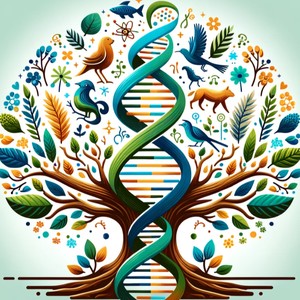Koi Fish Health: Treating Bacterial Gill Disease
Nov 25, 2024
Learn how to identify, treat, and prevent bacterial gill disease in koi fish. This video covers symptoms, causes, treatment options, and essential prevention tips to keep your koi healthy and your pond thriving.
View Video Transcript
0:00
koish Health treating bacterial Gill
0:02
disease bacterial Gill disease in koi
0:04
fish is a serious condition that can
0:06
quickly become life-threatening if left
0:08
untreated this video will guide you
0:10
through the process of identifying
0:12
treating and preventing this common
0:15
ailment in koi ponds bacterial Gill
0:17
disease also known as bug D is an
0:20
infection caused by various bacteria
0:22
that attack the gills of koi fish the
0:24
disease primarily affects the delicate
0:26
Gill tissue impairing the fish's ability
0:29
to breathe and regulate its body
0:31
functions identifying buy early is
0:34
crucial for successful treatment look
0:36
for signs such as Rapid or labored
0:38
breathing fish gasping at the water
0:40
surface rened or swollen gills and
0:43
excess mucous production on the gills
0:45
affected koi may also show a loss of
0:48
appetite lethargy and might isolate
0:50
themselves from other fish several
0:52
factors can contribute to the
0:54
development of bacterial Gill disease
0:56
poor water quality overcrowding and
0:58
stress are primary culprits sudden
1:01
temperature changes and inadequate
1:02
filtration can also create conditions
1:05
favorable for bacterial growth the first
1:07
step in treating BD is to improve water
1:11
quality perform a partial water change
1:13
of about 30 to 50% ensuring the new
1:17
water is properly treated and matches
1:20
the temperature of the pond clean the
1:22
filter system and remove any debris from
1:24
the pond next consider medication
1:26
options antibiotics specifically
1:29
designed and for fish such as oxy TRC
1:32
cycline or chloramine te can be
1:34
effective against BD always follow the
1:37
manufacturers instructions carefully as
1:40
overdosing can harm your koi in severe
1:42
cases a bath treatment with potassium
1:45
perinate may be necessary but this
1:48
should only be done under expert
1:50
guidance supportive care is essential
1:52
during treatment increase irration in
1:54
the pond to help stressed fish breathe
1:56
more easily you may need to temporarily
1:58
reduce feeding as sick fish often have
2:01
decreased appetites and produced more
2:03
waste monitor your COA closely during
2:06
the recovery period continue to maintain
2:09
excellent water quality and observe for
2:11
any recurring symptoms it may take
2:13
several weeks for the gills to fully
2:15
heal even after the bacteria have been
2:17
eliminated prevention is key in managing
2:19
bacterial Gill disease maintain proper
2:22
filtration avoid overcrowding and
2:25
perform regular water tests to ensure
2:27
optimal conditions quarantine new fish
2:29
before introducing them to your main
2:31
Pond to prevent the spread of diseases
2:33
by understanding bacterial gild disease
2:35
recognizing its symptoms early and
2:37
taking prompt action you could
2:39
effectively treat your koi and maintain
2:42
a healthy thriving pond ecosystem
2:45
remember a proactive approach to Pond
2:48
management is the best defense against
2:50
this and other fish diseases
#Aquaculture
#Fish & Aquaria

